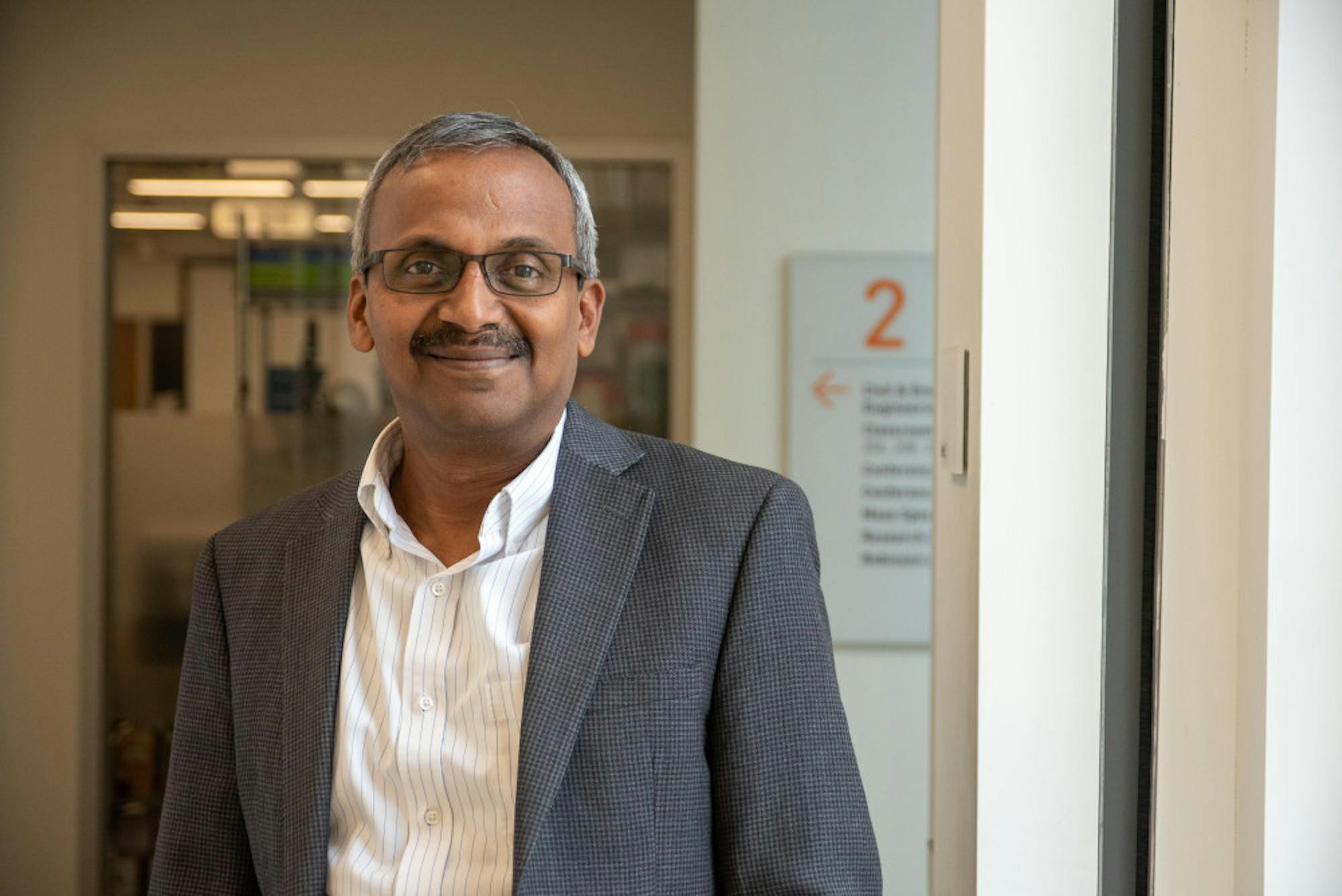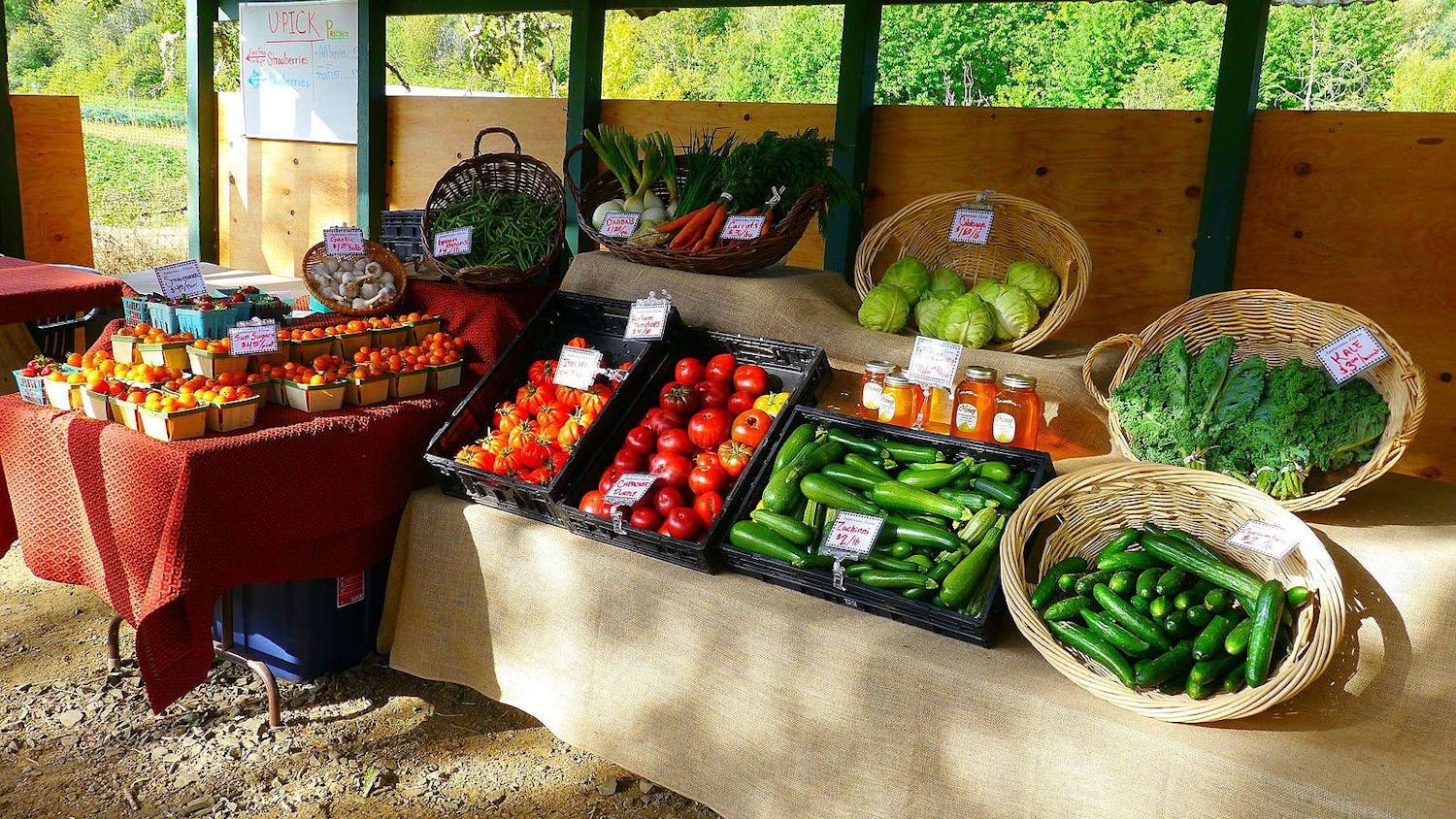Editor’s note: This interview has been edited for length and clarity.
Dr. Abani Patra was appointed director of the up and coming Data Intensive Studies Center (DISC) at Tufts University this past spring. He started in this position on Aug. 15. Patra has an extensive background in computational and data sciences. He previously served as the founding director of the Institute for Computational and Data Sciences at the University at Buffalo, as well as a professor in the University at Buffalo Department of Mechanical and Aerospace Engineering. He joins Tufts as a professor of mathematics and computer science and was recently awarded the Stern Family Professorship.
The Daily sat down with Patra to discuss his vision for DISC, plans to teach his own courses at Tufts and what students and faculty can expect from DISC in the near future.
The Tufts Daily (TD): What drew you to the Data Intensive Studies Center at Tufts?
Abani Patra (AP): I like creating new entities of people with different passions in life. I’ve gone through the process of creating new programs and organizational units, both at the university level, when I was in Buffalo before, and also at the federal government, initiating programs. I like the notion of having a clean slate and building something that delivers lasting value. So that’s the affinity quotient and why I like doing something like this.
Why Tufts in particular? It’s an interesting school. It has an interesting mix of the sciences, engineering and the social sciences that not many schools have, at a scale where you can have conversations across the disciplines without being too large. There are places that are significantly larger, some not too far from here, where those conversations are much harder. The departments there are over 500 people. Here, it’s 45 people. So you can cross disciplines, I believe, much easier. Something like DISC is supposed to cross all units. It’s going to require a lot of cross-talk, which I think, on this campus, is much easier to do.
To truly make an impact in data science, DISC has to cross the boundaries. If it’s only inside computer science, it will under-achieve. If it’s only inside mathematics, it will under-achieve. If it’s only inside Arts and Sciences, it will under-achieve. It has to cross the boundary into clinical science, medical science, anthropology, all the arts and all the sciences that we know of. Ultimately, the product of a lot of human enterprise is data that we use to interpret and think.
TD: What would you say are the main goals of DISC?
AP: So there is a very carefully developed set of documents that many groups of faculty, staff and students have worked on. To give a one or two line summary of that, the goal is to accelerate learning in science, arts, engineering and all of the fields that Tufts is engaged in, using data science as a tool to multiply people’s learning productivity.
The vision for DISC is to create a cohesive entity out of all of that, to articulate where all that energy can come together and build something bigger. My hope is that we create an institution that is binding, not just one more silo, and that we create something that makes all the other units bigger and better, that we have a huge impact on scholarship and research, for the students and faculty both, and that we have an impact on the process of educating our students on these methodologies ...
There is a vast number of students who are being impacted, or their disciplines are being impacted, and they need to be trained by people that also sometimes need to be trained. Our generation, we didn’t grow up with data science, so we also need to train ourselves. So that’s kind of an interesting situation we have now, where we have to bring everybody up to speed.
Fundamentally, if we send you out, what’s the primary product of a college? Graduates and the knowledge we create. If we send out our students in the next five to 10 years without expertise in these topics, we are failing them. We are not sending them out with an education that will allow them to be successful. So, these are some of the things that I am hoping DISC will accomplish.
TD: Which courses will you be teaching through the Department of Mathematics and the Department of Computer Science? Are there any new courses you plan to introduce at Tufts?
AP: At this point, I have not completely worked that out, but yes, there will most likely be some new courses. Initially, maybe some gaps that aren’t currently being covered. I have to look at the existing catalog, I haven’t had a chance to master everything in the current catalog and see what is maybe not being taught enough. But things that will fundamentally affect data science, as well as things that underpin machine learning, and topics of that nature. Given my cross-background, I’ll probably teach something that is at the intersection of mathematics and computer science, not one or the other.
TD: Which areas of research does DISC have plans to expand on, or has already begun to expand on?
AP: This stage, it’s plans. Right now, DISC is me, you’re looking at it. I am hopefully going to add a lot of interesting and interested people. Instead of saying that we have it all worked out, a lot of that will be defined by the people I bring into DISC. Not all of them are going to be from the outside, I’m hoping current faculty and current students will jump in ... There’ll be many individuals who are already doing things, whom I’m hoping will find DISC a place to contribute and be rewarded for that. So that process, I don’t want to say that we’ll do machine learning, and this and that, and I don’t want to make a list of three things we’ll research on tomorrow. In the general sense, we will look for anything that allows the intersection of mathematics, computing, data and the sciences. We will not rule out things, we will not rule in things very strictly yet. Simply because of the nature of the discipline, it functions best when it is carefully motivated by people across the disciplines. I’ve had some extremely interesting conversations with faculty who are doing things with data science and x, x being anything from social inequity, election gerrymandering, disease prediction and prevention, health records, economics … so there is a lot of cross-cutting disciplines and problems. If you look at the documents, there is already an articulated set of basic rules, so we will build on that.
TD: How does DISC plan to expand the data science degrees that are available for undergraduates and graduate students?
AP: So right now there are, to the best of my knowledge, there are two master’s programs, one minor in the School of Arts and Sciences, one major in engineering and an arts and sciences major in planning, if I’m not mistaken. I’ve had conversations with all of the people involved. We will try to support them in every single way that we can, to introduce cross-cutting synergies where possible. There are good problems here, there are good ideas here, that can crossover from arts and sciences to engineering or the other way around. We will try to make those relationships work. There are structural issues in doing these things, because number one, everyone is very busy doing what they’re doing. Professor [Alva] Couch is running data science in engineering, and that’s two and a half jobs. So for him to be able to also, at the same time, help analytics in economics is probably not as practical. So, DISC will hopefully leverage all of these excellences that are isolated into one single unit.
TD: What can students and faculty expect within the next year or so from DISC?
AP: Lots of interesting opportunities to participate and grow. DISC will be what people make of it. If people, students, come in and try to participate in things, it will grow and become better. DISC will try to provide resources where possible. DISC will try to provide a community as much as possible, where people who are interested in these things can come together. When interesting minds come together, good things happen, always. When interesting minds come together with resources, good things can be delivered. That’s essentially what we would like to see in the first year or two.
Q&A: New Tufts Data Intensive Studies Center director Dr. Abani Patra

Abani Patra, new Tufts Data Intensive Studies Center director, is pictured on Sept. 10.





